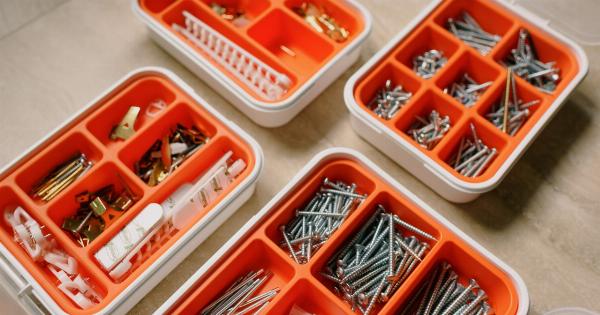Summer is a time for outdoor activities, barbecues, and soaking up the sun. However, for many people, summer also brings a wave of allergies that can dampen the fun.
Sneezing, itchy eyes, and a stuffy nose are just a few of the symptoms that can make enjoying the great outdoors a challenge. Fortunately, there are several steps you can take to beat summer allergies and make the most of the season. In this article, we will explore some effective strategies for managing and reducing summer allergies.
1. Identify Your Allergens
The first step in beating summer allergies is to identify your specific allergens. Common culprits during the summer season include pollen from grasses, trees, and weeds.
Mold spores can also trigger allergies and thrive in damp areas such as bathrooms, basements, and air conditioning systems. By understanding which allergens affect you the most, you can take targeted measures to limit your exposure.
2. Monitor Pollen Levels
Keeping an eye on pollen levels can help you anticipate periods when your allergies may be worse. Check your local weather forecast or consult online resources that provide pollen forecasts for your area.
On high pollen days, limit your time spent outdoors, especially during early morning and early evening when pollen levels are usually at their peak.
3. Keep Your Home Allergen-Free
Creating a clean and allergen-free environment is crucial in managing summer allergies. Take the following steps to minimize indoor allergens:.
– Clean your floors regularly using a vacuum cleaner with a high-efficiency particulate air (HEPA) filter to trap allergens.
– Wash bedding, curtains, and other fabrics frequently in hot water to remove pollen and dust mites.
– Use hypoallergenic pillow and mattress covers to protect against dust mites.
– Keep windows closed to prevent pollen from entering your home.
– Use air purifiers with HEPA filters to remove allergens from the air.
4. Create an Allergy-Free Bedroom
Your bedroom should be a sanctuary free from allergens that can disrupt your sleep and worsen your symptoms. Consider the following tips:.
– Invest in allergen-blocking pillowcases and mattress covers.
– Wash your hair before going to bed to remove any pollen that may have accumulated during the day.
– Keep pets out of the bedroom, as they can track pollen inside.
5. Manage Your Indoor Humidity
High humidity levels can promote the growth of mold spores, which can exacerbate allergies. Use a dehumidifier in damp areas such as the basement or bathroom to keep humidity levels in check.
Aim to keep indoor humidity between 30% and 50% to discourage mold growth.
6. Take Medication as Directed
If over-the-counter allergy medications provide relief for your symptoms, make sure to follow the recommended dosage and instructions. Antihistamines can help alleviate sneezing, itching, and runny nose, while decongestants can relieve nasal congestion.
However, it’s best to consult with your doctor or pharmacist to determine which medications are suitable for you.
7. Try Natural Remedies
In addition to traditional medication, some natural remedies may help alleviate summer allergies. These include:.
– Neti pots: Used for nasal irrigation, these pots can help flush out allergens and reduce nasal congestion.
– Nasal rinses: Saline nasal sprays or rinses can help soothe irritated nasal passages.
– Quercetin supplements: This natural plant compound has anti-inflammatory properties and may help reduce allergy symptoms.
– Local honey: Consuming local honey may help desensitize your immune system to local pollen allergens over time.
8. Wear Appropriate Clothing
When spending time outdoors, your choice of clothing can make a difference in preventing allergies. Opt for sunglasses to shield your eyes from pollen, and wear a wide-brimmed hat to keep pollen from settling in your hair.
Consider wearing long sleeves and pants to minimize skin exposure to allergens.
9. Rinse Off After Outdoor Activities
After spending time outside, pollen can linger on your skin, hair, and clothes. Taking a shower and changing into clean clothes will help remove any allergens and prevent them from spreading throughout your home.
10. Consult with an Allergist
If your allergies continue to disrupt your daily life, it may be beneficial to consult with an allergist. They can help identify the specific allergens that affect you and develop a personalized treatment plan to manage your symptoms.
Allergists are also equipped to perform allergy testing to provide a more accurate diagnosis.
By following these tips and strategies, you can beat summer allergies and enjoy everything this vibrant season has to offer. Don’t let allergies hold you back from making cherished memories and soaking up the sun!.































